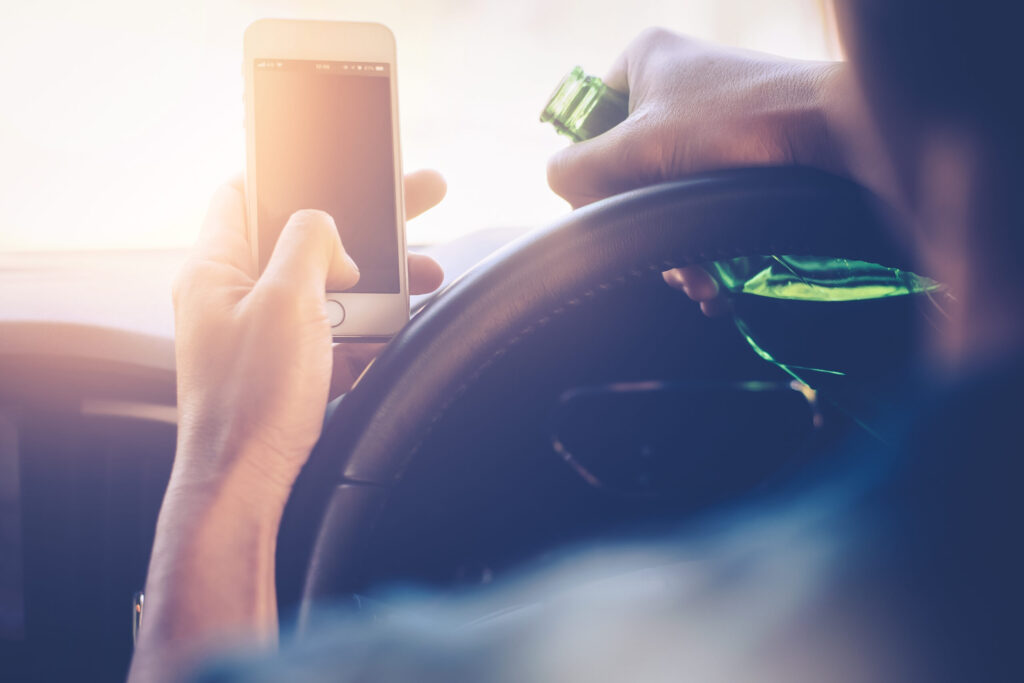Defending Against First-Time DWI Charges: Key Strategies
Being charged with Driving While Intoxicated (DWI) for the first time can feel overwhelming. A conviction can lead to significant consequences, including fines, license suspension, and possibly jail time. However, facing a charge does not mean you’re automatically guilty. By understanding your legal rights and exploring available defenses, you can build a strong case to protect your future.
Here’s a detailed guide to defending against first-time DWI charges and the steps you should take to navigate this challenge.
Potential Consequences of a First-Time DWI Conviction
A first-time DWI conviction can result in serious penalties, which vary depending on the state and the circumstances surrounding your case. Common outcomes include:
- Fines and Court Costs: Financial penalties, often totaling hundreds or thousands of dollars.
- License Suspension: Temporary revocation of your driving privileges, typically for several months.
- Probation: Supervised or unsupervised conditions, which may include compliance with alcohol education programs.
- Mandatory Treatment Programs: Enrollment in alcohol education or treatment sessions to address drinking behaviors.
- Jail Time: Some jurisdictions require mandatory jail sentences, even for first-time offenders.
These consequences highlight the importance of crafting a solid defense to mitigate or avoid penalties.
Effective Defenses for First-Time DWI Charges
Several strategies can be employed to contest DWI charges. The most effective defense depends on the specific details of your case. Here are some common approaches:
- Questioning the Legitimacy of the Traffic Stop: Officers must have reasonable suspicion to pull you over. If this standard was not met, the evidence gathered during the stop may be excluded.
- Challenging Sobriety Test Results: Field sobriety tests can be influenced by environmental factors, medical conditions, or improper administration, leading to inaccurate results.
- Disputing BAC Test Accuracy: Breathalyzer devices are prone to errors if they are not properly maintained or calibrated. Blood alcohol concentration tests can also be questioned if there were procedural errors.
- Medical Defenses: Certain medical conditions, such as diabetes or acid reflux, can mimic symptoms of intoxication or affect test results.
- No Probable Cause for Arrest: Police must establish probable cause before making an arrest. Without it, the charges could be challenged.
Each of these defenses requires a thorough investigation into the evidence and circumstances surrounding the arrest.
Steps to Take After a DWI Arrest
If you are charged with a first-time DWI, taking immediate and thoughtful action is critical to protecting your case. Here’s what to do:
- Remain Calm and Polite: Cooperate with law enforcement during the arrest process to avoid additional complications.
- Request Legal Representation: Avoid answering questions or making statements without consulting an attorney.
- Document the Incident: Write down everything you remember about the traffic stop, the officer’s actions, and any tests performed.
- Request a Hearing to Challenge License Suspension: In many states, you must request a hearing within a specific timeframe to contest an automatic license suspension.
- Avoid Driving on a Suspended License: Driving while your license is revoked can result in further legal penalties.
Taking these steps early can strengthen your case and provide your DWI attorney with critical information.
How a DWI Attorney Can Help
Navigating a DWI charge without legal support can be daunting. An experienced attorney brings invaluable expertise to your case, including:
- Case Evaluation: Identifying weaknesses in the prosecution’s evidence and determining the best defense strategy.
- Evidence Review: Examining police reports, breathalyzer logs, and video footage to uncover procedural errors or inconsistencies.
- Negotiation: Advocating for reduced charges or penalties through plea agreements when appropriate.
- Representation in Court: Presenting a well-prepared defense to challenge the prosecution’s case.
With professional legal guidance, you can navigate the complexities of a DWI charge more effectively.
Exploring Alternative Outcomes for First-Time Offenders
First-time offenders may be eligible for alternatives that reduce the impact of a DWI charge. These options vary by jurisdiction and include:
- Diversion Programs: Completion of an alcohol education or treatment program can sometimes result in the dismissal of charges.
- Deferred Sentencing Agreements: Agreeing to meet specific conditions, such as community service or probation, in exchange for avoiding a formal conviction.
- Lesser Charges: Negotiating a plea to a reduced charge, such as reckless driving, which carries fewer long-term consequences.
These resolutions often require negotiation and legal expertise to secure.
Challenging Evidence in DWI Cases
One of the most effective ways to defend against a DWI charge is by challenging the evidence presented by the prosecution. Areas to scrutinize include:
- Calibration and Maintenance Records: Ensuring breathalyzer devices were properly calibrated and maintained.
- Video Footage: Dashcam or bodycam footage can reveal procedural errors or discrepancies in the officer’s account.
- Chain of Custody: Verifying that blood or urine samples were properly handled to prevent tampering or contamination.
- Field Sobriety Test Administration: Assessing whether these tests were conducted according to standardized procedures.
Weakening the prosecution’s evidence can significantly strengthen your defense.
Tips to Avoid Future DWI Charges
Beyond addressing the current charge, taking steps to prevent future incidents demonstrates responsibility and can help restore trust with the court. Consider these tips:
- Plan Ahead: Arrange for a designated driver or use rideshare services when consuming alcohol.
- Understand Legal Limits: Be aware of your body’s tolerance and avoid driving after drinking, even if you feel sober.
- Participate in Education Programs: Alcohol education courses can provide insights into safe drinking practices and the legal consequences of impaired driving.
- Install an Ignition Interlock Device: If required, comply with court-mandated ignition interlock programs to regain driving privileges responsibly.
Taking proactive steps can help you rebuild your reputation and avoid further legal trouble.
Defend Your Rights and Future
A first-time DWI charge is a serious legal matter, but it doesn’t have to result in long-term consequences. By understanding your rights, exploring available defenses, and working with an experienced attorney, you can effectively challenge the charges and protect your future.
At Grafe & Batchelor, we are committed to helping clients navigate DWI charges with care and expertise. Contact us today for a consultation, and let us provide the guidance and advocacy you need to achieve the best possible outcome.




